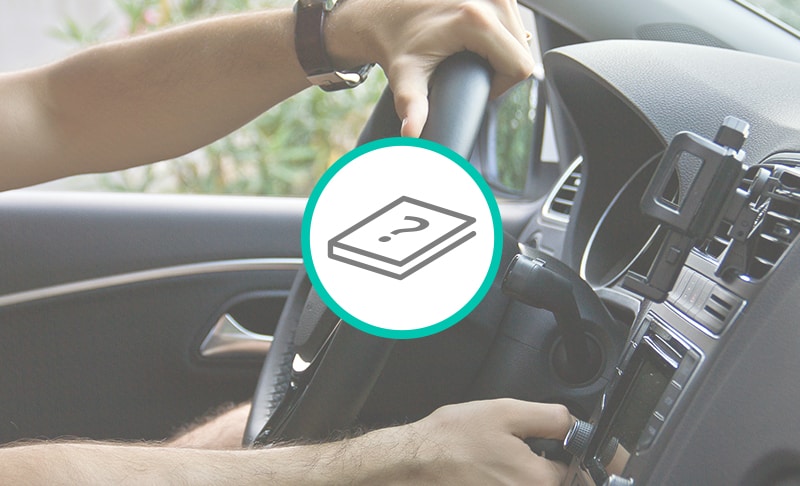
How Much Does a Car Depreciate per Year?
Certain investments, such as a home, have the potential to grow in value. With a car, depreciation can siphon away your value. Understanding how car depreciation works is an important part of car-buying and ownership.
IN THIS POST, WE COVER:
- What is depreciation on a car?
- What causes a vehicle to depreciate?
- How to determine vehicle depreciation?
- Can you slow down depreciation?
What is depreciation on a car?
Depreciation is a way of measuring how much value your vehicle loses over time.
Newer cars tend to depreciate at a faster rate than used ones. The typical new car loses between 40% and 50% of its value within the first five years.
In a sense, depreciation is one of the costs you pay to own a car. While you don’t pay for it out of pocket the way you do insurance, maintenance or repairs, you’ll feel the financial hit from depreciation when you get ready to sell or trade-in your vehicle.
What causes a vehicle to depreciate?
There’s no single thing that results in depreciation. It’s a process that involves a number of factors that can affect your car’s value, including:
- Vehicle age – As your car gets older, it’s natural that some value will be lost as new models hit the market. An older car may lack features or upgrades newer cars have, making them less valuable in the eyes of buyers.
- Wear and tear – Unless you leave your car parked in the garage permanently, it’s going to get some wear and tear. Dents, dings, scratches — all those little things can add up to lost value.
- Mileage – More miles on a vehicle means more stress on the engine and other key moving parts. The more miles on your car, the less it’s likely to be worth.
- Gas mileage – Cars that are gas guzzlers may depreciate more quickly simply because they’re more expensive to fuel, while fuel-efficient vehicles might depreciate slower.
- Safety and reliability ratings – A car that has a higher safety or reliability rating is typically going to keep its value longer than one that has poor ratings in those categories.
- Size – If you drive a bigger luxury sedan or SUV versus a midsize or compact vehicle, you’re likely to see value drop faster because you may spend more on maintenance and upkeep.
- Manufacturer – Who made your car can also matter for estimating depreciation. Certain car makes and models tend to retain their value more than others.
How to determine vehicle depreciation
There are two reasons you might be concerned with depreciation if you’re buying a car.
First, depreciation can affect the trade-in value for your current vehicle. And second, you probably don’t want to buy a vehicle that’s going to depreciate rapidly.
A simple way to determine how much value your vehicle has lost is to use an average depreciation rate for the first year and each subsequent year.
So, assuming your car loses 20% of its value the first year, and 10% each additional year, which is about average, the calculations would look like this:
- Depreciation after first year of ownership = Purchase price x .20%
- Depreciation after year two = Year one value x .10%
- Depreciation after year three = Year two value x .10%
And so on, for each year you’ve owned the vehicle.
Vehicle depreciation calculators
Depreciation calculators can help you drill down to an even more accurate number if you’re trying to figure out how much value your car has lost. Here are a few reliable calculators you can use to determine how your car’s value may change over time:
- Edmunds Cost of Ownership Calculator
- Omni Car Depreciation Calculator
- Canadian Black Book Loan Equity Calculator
Can you slow down depreciation?
Depreciation is inevitable but there are some things you can do to minimize its impact.
- Watch your mileage – Avoid putting an excessive number of miles on the vehicle if possible.
- Schedule regular maintenance – Getting the oil changed regularly, having a tune-up once a year and making sure your tires are in good condition can help slow depreciation.
- Drive safely – Accidents can deliver a big blow to your car’s value so when you’re behind the wheel, keep your eyes on the road and use caution.
Check your car’s value before you trade
If you’re planning to use your current car as a trade-in, get to know its value first. This can give you a starting point for negotiating price on your next new or used car.
Knowing your car’s value can also help you determine how much to put down and what you’ll need to finance. That in turn can help you choose a lender for your car purchase. At Birchwood Credit Solutions, we offer loan financing to fit almost any need and credit profile.
Before you buy, use the Birchwood Credit Solutions car loan calculator to set your budget for a new vehicle. Then, go online to apply for a pre-approved car loan.



